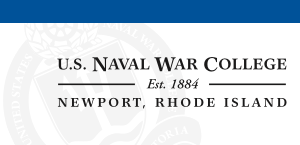Naval War College Review
Abstract
The purpose of this study is to show the profound effect a commander in chief’s approach to operational command can have on the course of events in war. It does so by analyzing the performance of two operational l lev el commanders in chief, General Robert E. Lee, commander of the Army of Northern Virginia, and Admiral Isoroku Yamamoto, commander of the Imperial Japanese Navy Combined Fleet, during the defining campaign of their respective careers. These specific battles are selected to demonstrate that the requirements of operational-level command transcend time, technology, and environment. Additionally, it is in the study of the losing commanders that the most compelling lessons can be drawn. The picture that emerges is an endorse ment of Carl von Clausewitz's notion that there are no hard and fast rules that govern the conduct of war; it is the presence of the commander that decisively influences the course of events-for better or worse.
Recommended Citation
Rubel, Robert C.
(1995)
"Gettysburg and Midway: Historical Parallelsin Operational Command,"
Naval War College Review: Vol. 48:
No.
1, Article 8.
Available at:
https://digital-commons.usnwc.edu/nwc-review/vol48/iss1/8

